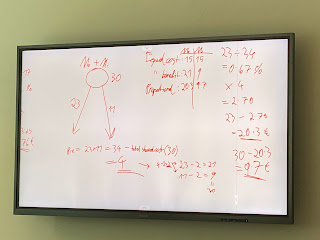World Politics Session 9 and 10
Today, we reviewed what we learned last week about International Organisations and how the taxonomy works between public and private international organisations, including the scopes, the functions, the specific purposes. The IO have no right or power to decide the law, they are going to support governments in doing that and the government go back and sign it and the ratification process works out within their respective parliaments. The principal-agent problem happens usually when there is a conflict of interest between the owner/shareholder and the people hired to do the work for them. For example: The workers wants to have a higher salary and become more ambitious without much care for the risk as the employer and obviously, the employer wants to limit it. This problem is prevalent in many international organisations. Frameworks and mechanisms in International Organizations can also help in solving conflicts, like a government can sue each other in the World Trade Organization Dispute Settlement System. It usually starts with a government complaining about another government is not respecting the rules of the organisation, then they create a panel of expert nominated by each side with a head of the panel, whom is neutral and can also make a verdict. Panel comes up with a decision, and the government can accept or not. If it does not satisfy the government, it can go to the Appellate body and they will see who is right or wrong. There are other options, and usually the Appellate body has to control and review the decisions, confirms or change, but they can't tell a country to change laws as they can only be change by their parliaments. If a government loses the case, they can decide to comply or change what they are doing, that compliance does not include compensation from past sales loss. If they decide not to change its policies, there can be retaliations, and trade sanctions can approved by the WTO. Or, the offending government can offer compensation if they don't want to change policies, they can lower trade barriers or compensate in some other areas of the relations for the commercial loss in violation. The dispute settlement system is basically a system to say to a country that they are not acting in the best interest of the parties and there is a third party leading the assessment for the resolution for the conflict between the parties.
Then, we started with the presentations and it was interesting to see the diverse opinions of every group with ours. After the break, we looked into sanctions, usually a combination of incentives and punishments to induce good behaviour. There are three tools of compliance: targeted incentives, sanctions, and war. Sanctions usually comes before war. Who can impose sanctions? Usually, it is the United Nations Security Council. Sanctions can target individuals, groups, companies and organisations or entire governments and countries—where you believe it would have the highest effect. The European Union has also imposed its own sanctions such as visa bans, asset freezes, and arms embargoes. They do it mostly on their own initiative or they can implement the UN Security Council resolutions.
We then discussed how sanctions are with Russia, whether it is working or not. Then, Roman brought up the sanctions on North Korea, that even with sanctions and a closed economies, their 'friends' would still give them assistance. Syria and Iran has been sanctioned for awhile as well, thus, the effect of sanctions for changing behaviour, the effect is very limited. It is mainly used for the purpose of avoiding war. Apparently, the EU cannot sanction its own member states, maybe it is not impossible, but the chance is limited.

Comments
Post a Comment